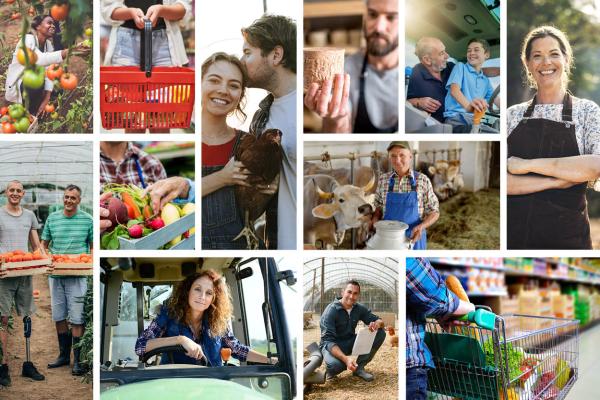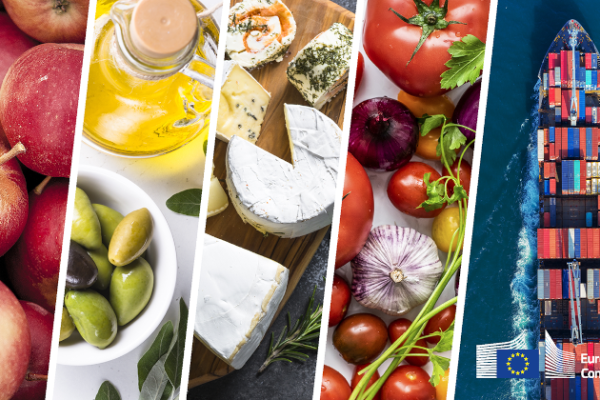Agri-food trade with EFTA-EEA
The European Free Trade Association (EFTA) is an intergovernmental organisation of Iceland, Liechtenstein, Norway and Switzerland. The European Economic Area (EEA) Agreement is an international agreement enabling among others the extension of parts of the EU’s single market to Iceland, Liechtenstein, and Norway.
Unlike in the case of other industrial sectors, trade in agricultural products between the EU and the EFTA countries is not completely liberalised. The EU maintains close ties with the agricultural sectors of EFTA and EEA countries through agreements on trade in agricultural products. Further liberalisation of trade in agricultural products has recently been achieved with Norway and Iceland through bilateral agreements, which were negotiated on the basis of Article 19 of the EEA Agreement.
As concerns agricultural products, Article 19 of the Agreement stipulates that
the Contracting Parties undertake to continue their efforts with a view to achieving progressive liberalisation of agricultural trade. To this end, the Contracting Parties will carry out, before the end of 1993 and subsequently at two-yearly intervals, review of the conditions of trade in agricultural products.
This level of liberalisation in agri-food trade has not yet been the achieved with Switzerland, pending the resolution of horizontal issues.
Overall, the EU is a net exporter of agri-food products to these countries. In 2019, Switzerland ranked as the 4th largest destination for EU agri-food exports, while Norway ranked 6th (2019).
Countries
Iceland
Iceland is a Contracting Party to the Agreement on the European Economic Area (EEA). The EEA Agreement provides for free movement of goods, except for agricultural and fisheries products.
Bilateral trade negotiations in agriculture are conducted between Iceland and the EU on the basis of Article 19 of the EEA Agreement. The first agreement with Iceland on trade preferences in agricultural products entered into force in 2007. The latest agreement came into force in 2018, negotiated as a package with an agreement on the trade liberalisation of processed agricultural products and foodstuffs, as well as Geographical Indications.
The main categories of agri-food products exported by the EU to Iceland include pasta, pastry, biscuits and bread, vegetables and chocolate, confectionary, and ice cream.
The EU's main imports from Iceland's agri-food sector include non-edible animal products, live animals and raw hides, skins and furskins .
Related information
Norway
The EEA Agreement allows Norway to benefit from the EU Single market. However, agriculture and fisheries are exempt from free circulation.
Preferential trade in agricultural products between the EU and Norway is ruled by Article 19 of the EEA Agreement. The most recent Article 19 agreement entered into force on 1 October 2018.
The main categories of agri-food products exported by the EU to Norway include cigars and cigarettes; pasta, pastry, biscuits and bread and wine, vermouth, cider and vinegar.
The EU's main agri-food imports from Norway include food preparations, oilcakes and raw hides, skins and furskins.
Related information
Switzerland
EU-Switzerland relations in agriculture are governed by the 2002 EU-Switzerland Agreement on trade in agricultural products. This agreement provides for the elimination of tariffs as well as for the creation of tariff-free quotas for a number of products; however trade is yet not completely liberalised.
The agreement also contains trade-facilitation provisions in a number of areas such as wines and spirit drinks, Geographical Indications, organics and fruit and vegetables.
Switzerland is one of the EU's top trading partners for agri-food products. In 2019, Switzerland was the 4th largest destination for EU agri-food exports and the 6th biggest supplier of agri-food imports.
The EU is a net exporter to Switzerland. The main categories of products exported by the EU to Switzerland include wine, bakery products and vegetables.
The EU imports mainly roasted coffee, mineral waters and chocolate.


